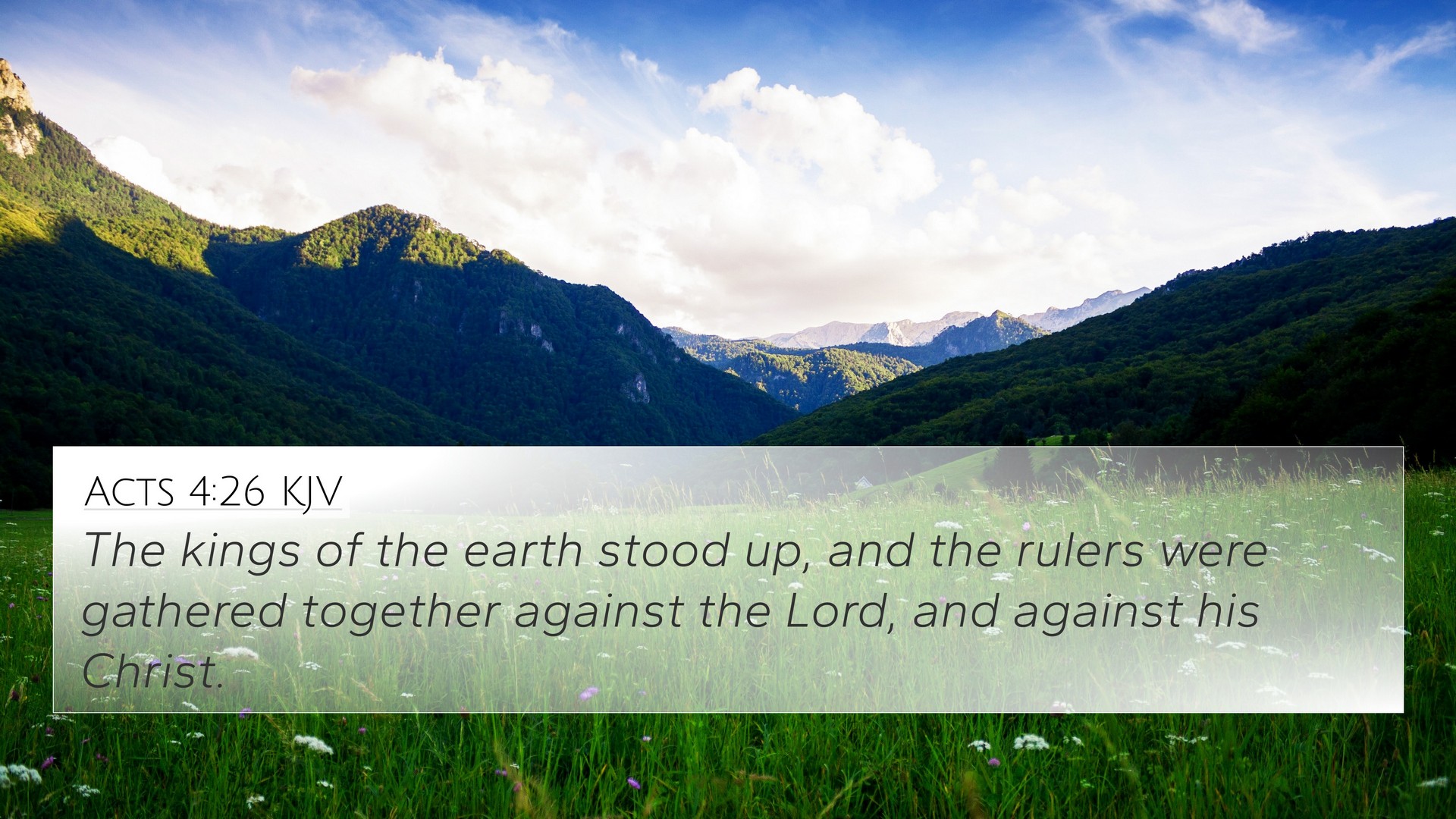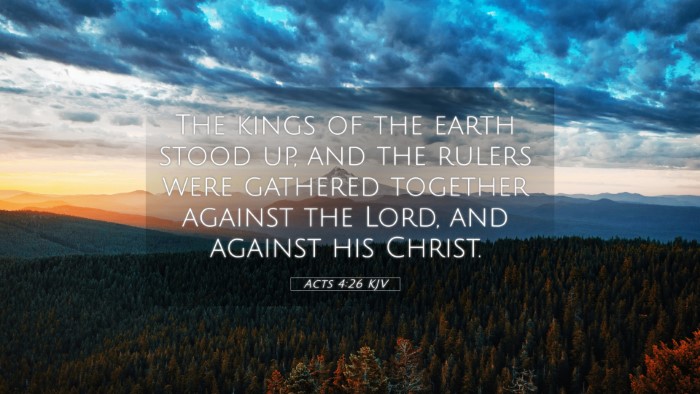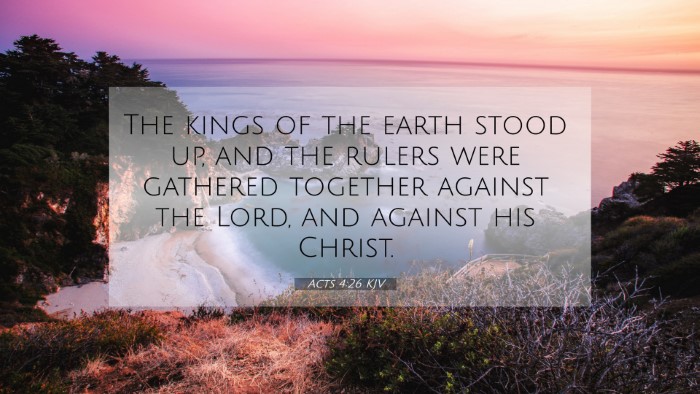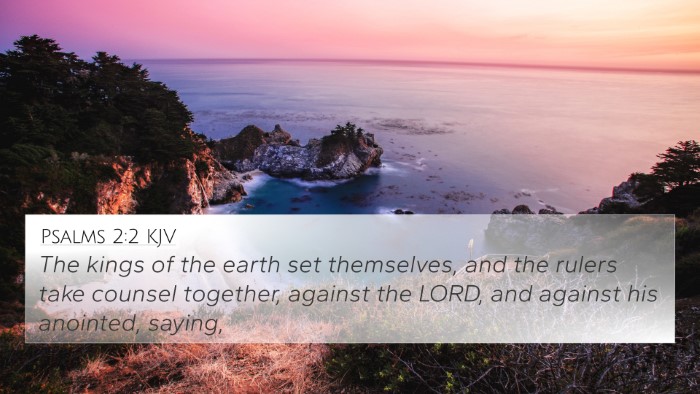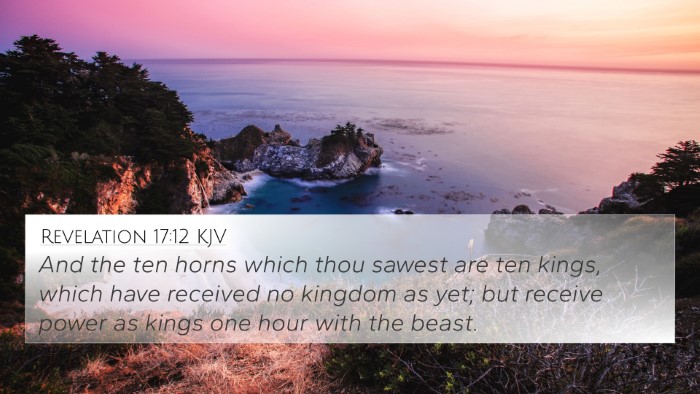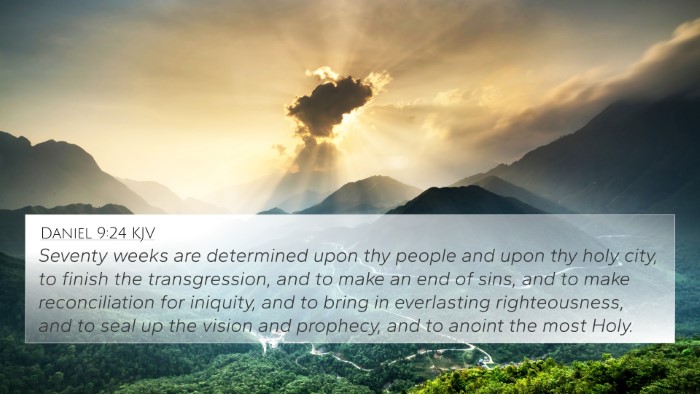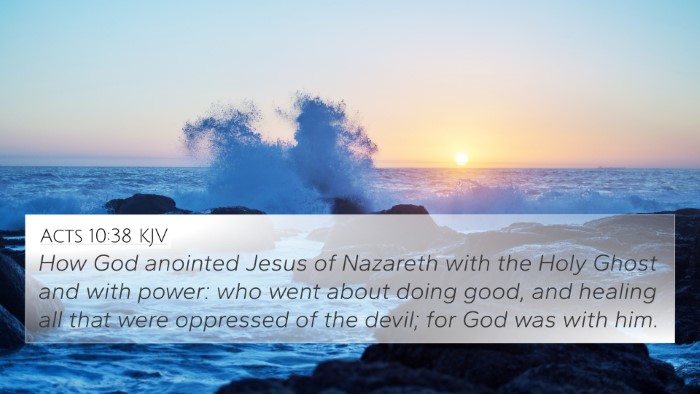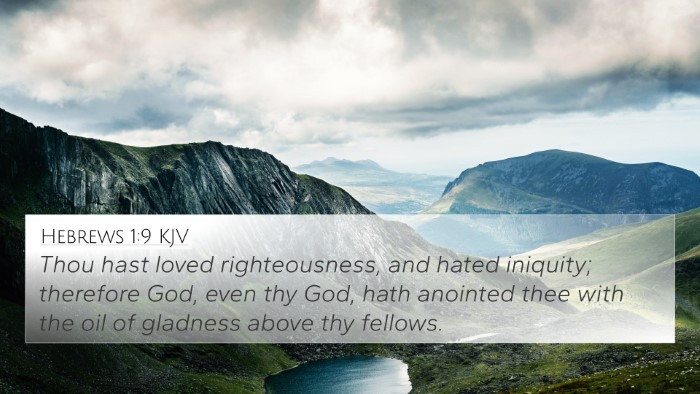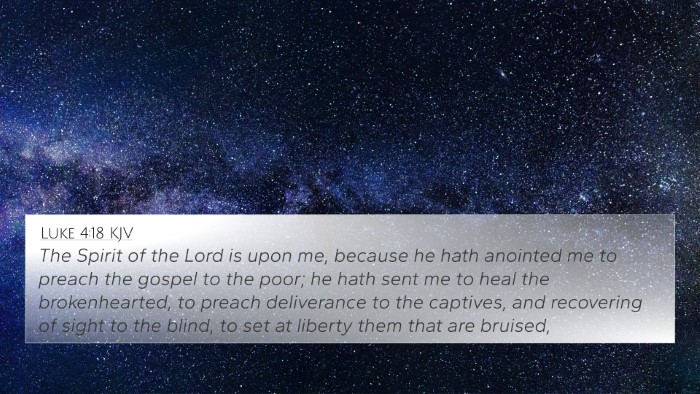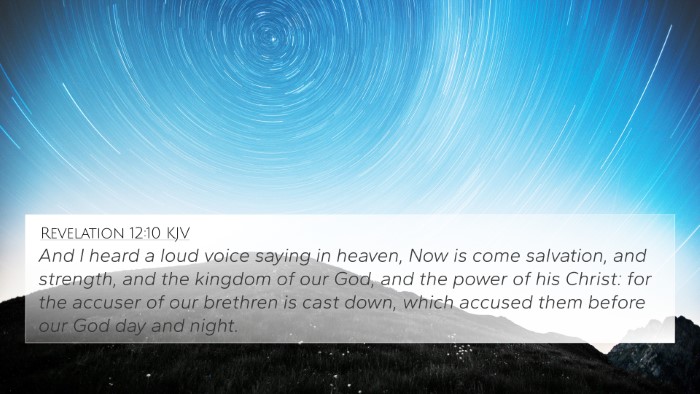Understanding Acts 4:26 - A Comprehensive Analysis
Verse: Acts 4:26 states, "The kings of the earth stood up, and the rulers were gathered together against the Lord, and against his Christ."
Overview
This verse from the Book of Acts is significant in portraying the unity of opposition towards God's anointed. Here, we find a depiction of earthly powers aligning against divine authority, revealing a critical theme in Biblical theology—the struggle between human rulers and God’s sovereign will.
Key Themes
- Opposition to God: The gathering of kings and rulers illustrates the prevailing resistance to divine authority, a theme echoed throughout scripture.
- The Messiah's Suffering: It aligns with prophecies concerning Christ’s persecution, emphasizing His role as the suffering servant.
- Divine Deliverance: Despite the hostility, the verse suggests that divine purposes will prevail, a recurring message in the Bible.
Cross-References
Acts 4:26 can be linked to several other scripture passages that enhance its meaning:
- Psalms 2:1-2: "Why do the nations rage, and the people plot a vain thing? The kings of the earth set themselves, and the rulers take counsel together, against the Lord and against His Anointed." This passage directly parallels the sentiments of Acts 4:26.
- Acts 2:23: "Him, being delivered up by the determinative counsel and foreknowledge of God, you have taken, and by wicked hands have crucified and slain." This verse highlights God's sovereignty over the events surrounding Christ's crucifixion.
- John 15:18-20: "If the world hates you, you know that it hated Me before it hated you." It informs believers of the expectation of opposition similar to Christ’s experience.
- Revelation 19:19: Illustrates the ultimate defeat of earthly rulers who oppose God's purposes, reassuring believers of God's sovereignty in the end.
- Matthew 26:3-4: Discusses the conspiracies against Jesus, contributing to the understanding of the rulers' intentions mentioned in Acts 4:26.
- Hebrews 10:30-31: Warns of the severity of opposing God, resonating with the theme of the rulers standing against Christ.
- 1 Peter 2:8: "And a stone of stumbling, and a rock of offense, even to them which stumble at the word, being disobedient..." connects to the rejection of the cornerstone, referring to both Christ and His followers facing opposition.
Interpretation from Public Domain Commentaries
Matthew Henry: Henry emphasizes that this verse expresses the hostility of the rulers toward Christ and His followers, indicating that such opposition is not new but part of the historical pattern of humanity's rebellion against God’s plan.
Albert Barnes: Barnes interprets this verse as a profound acknowledgment that, despite the collective efforts of earthly powers against the divine, God's plan remains unthwarted. He draws connections to the prophecy in Psalms that foretold this very rebellion.
Adam Clarke: Clarke offers insights into the implications of rulers aligning against Christ, pointing out the fulfillment of prophecy and the inevitability of conflict between human governance and divine decree.
Theological Implications
This verse raises critical theological inquiries regarding the nature of Christ’s authority and the resultant friction with worldly powers. It invites readers to reflect on the timeless nature of this conflict, encouraging steadfastness in faith amidst opposition.
Practical Applications
For believers today, Acts 4:26 serves as a reminder that facing opposition is part of the Christian journey. It encourages resilience, reinforcing that even when earthly authorities seem united against righteousness, God is still sovereign and active in His plans.
Concluding Thoughts
Overall, Acts 4:26 provides a rich tapestry of insight into the challenges believers face and the overarching sovereignty of God through Christ. By understanding the connections between this verse and related scriptures, one gains a deeper appreciation for the Bible's interwoven messages about faith, resistance, and divine purpose.
